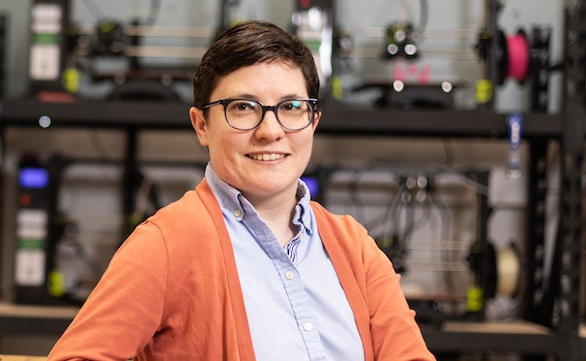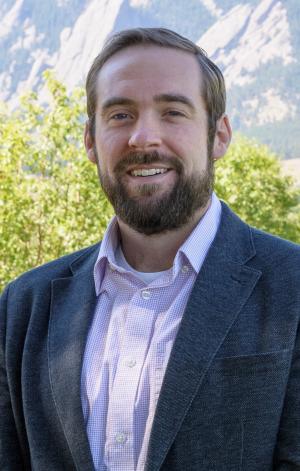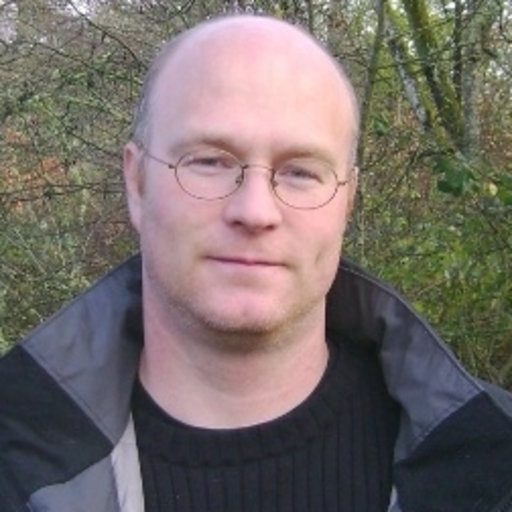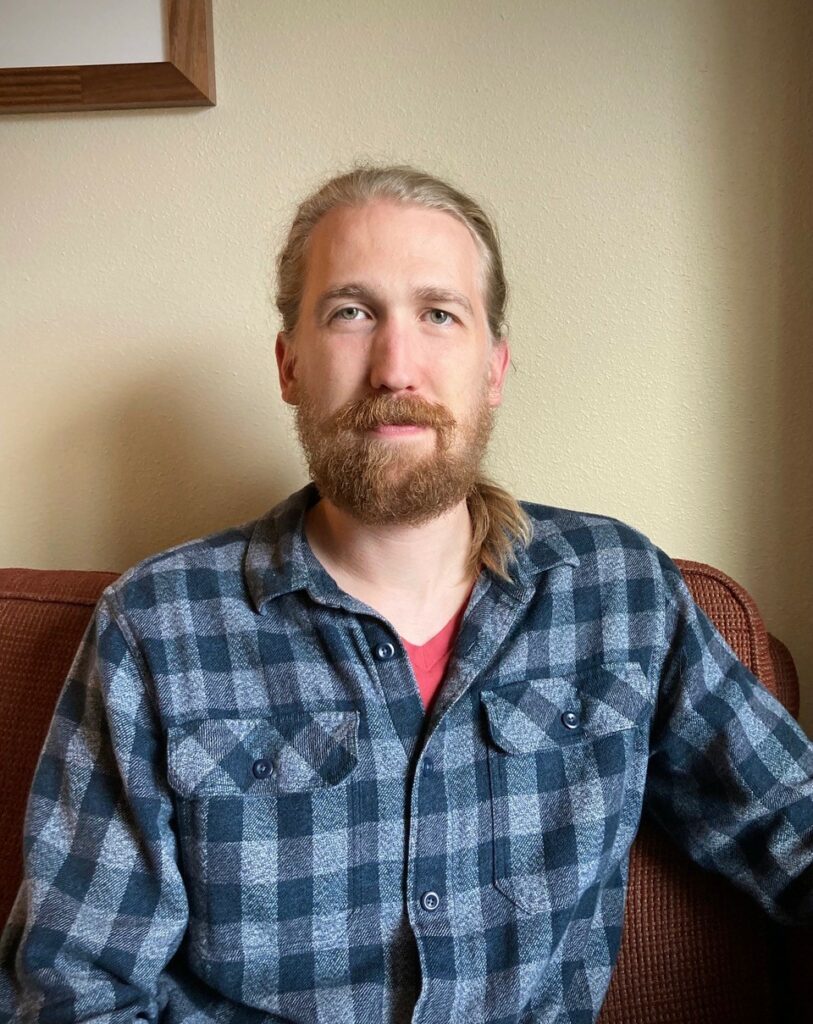PI: Erica Fischer, PhD, PE
Assistant Professor, School of Civil and Construction Engineering, Oregon State University
Twitter handle: @erica_fischer

My research revolves around innovative approaches to improve the resilience and robustness of structural systems affected by natural and man-made hazards. I have participated in post-earthquake reconnaissance team missions in diverse regions including Haiti, Napa, California, Italy, and Mexico City; and led a team of multi-disciplinary experts in post-wildfire reconnaissance in Paradise, CA. I have experience as a practicing structural engineer and holds a Professional Engineering license in the states of Washington, California, and Oregon.
Lisa M. Ellsworth, PhD
Assistant Professor, Department of Fisheries and Wildlife, Oregon State University
Twitter handle: @L_M_Ellsworth

My research program is focused on the interactions among people, plants and animals, and disturbance processes in Western rangelands and forests. I use both field and modeling techniques to investigate how management alternatives modify risk and resilience to wildfire and to post-fire recovery. I am also a science communication fellow with the Wilburforce Foundation, and believe strongly that strengthening the ties between people and place through education and outreach is one of our most important tools to conserve landscapes.
Lauren Linderman, PhD
Associate Professor, Department of Civil, Environmental, and Geo-Engineering, University of Minnesota

My research is focused on cyber-physical systems in order to improve the long-term performance of structures or limit their response during transient events, such as earthquakes. Primary areas of interest include vibration mitigation strategies, decentralized control, wireless sensor systems, and data acquisition techniques. Current efforts focus on leveraging the computational and sensing capabilities of wireless sensor systems for decentralized control of civil infrastructure. These wireless smart sensors can be extended to multitasking networks that both control response and monitor structural health.
Jenna Tilt, PhD
Assistant Professor, College of Earth, Ocean, and Atmospheric Sciences, Oregon State University

My research focuses on: 1) exploring the individual and community drivers of vulnerability to acute and chronic natural hazards; and 2) understanding how communities and individuals perceive and develop adaptation strategies in response to these hazards. I am particularly interested in how natural hazard mitigation decision-making at the institutional level can create adaptation measures that lead to uneven response and recovery. As a social scientist, I use mixed-methods approaches (e.g. qualitative, quantitative, and GIS) and work to deeply engage a wide variety community members and stakeholders to co-produce feasible adaptation strategies.
Brad Wham, PhD
Assistant Research Professor and Managing Director, Center for Infrastructure, Energy, and Space Testing, University of Colorado, Boulder
Twitter handle: @bpwham

My research leverages the capabilities of unique campus laboratories and collaboration with diverse colleagues to conduct a wide range of experimental activities targeting the resiliency of critical infrastructure systems, including water and natural gas distribution pipelines. I have degrees in geotechnical, structural, and civil engineering from Cornell University and Virginia Tech.
Andres Schmidt, PhD
Research Associate, Department of Fisheries and Wildlife, Oregon State University

As a physical geographer with a background in complex data analysis and spatial modeling, I am interested in the exploration and analysis of the ever-increasing richness of data from remote sensing projects or measurement networks including species distributions, land cover and land use information, forest fire fuel repositories, and long-term climate data. My research focuses on the application of process models, machine learning methods, and neural networks to analyze and model a variety of geophysical processes associated with a changing climate reaching from atmosphere-land exchange to wildfire risk assessments.
Amy Metz
PhD Student, School of Civil and Construction Engineering, Oregon State University

Prior to attending Oregon State University, I graduated from Rose-Hulman Institute of Technology with a bachelor’s degree in civil engineering and a consulting engineering certificate. I worked a variety of internships in both the public and private sector, which allowed me to discover my passion for interdisciplinary collaboration. My previous project work includes structural inspection at a distillery, design of a retrofitting plan for an industrial building after impact, design of a spring-based water distribution system for a community in Ecuador, and the design of water distribution and sanitation systems to be implemented in South Sudan. My internship and project experience helped me realize I most enjoy work that directly improves the lives of stakeholders, leading me to OSU to conduct research into the impact of wildfires on communities.
Amanda McCann
MS Student, Civil, Environmental, and Geo-Engineering, University of Minnesota

Eliza Amstutz
MS Student, Geography, College of Earth, Ocean, and Atmospheric Sciences, Oregon State University

Before attending OSU, I earned my Bachelors degree at the University of California, Los Angeles in International Development with a minor in Geospatial Information Systems & Technologies. My background includes geospatial analysis for social and ecological systems, French language immersion, outdoor education, and published research revealing and communicating lead content in community drinking water in California’s Childcare Facilities for the Luskin Center for Innovation. I am interested in water access and community resilience in a changing global environment and combining geospatial and qualitative research methods to understand complex systems.
GIS Analyst/Web Developer/ Data Manager, Conservation Biology Institute, Corvallis Oregon

My research is focused on dynamic spatiotemporal modeling, web & database application development, programming, automation, 3D geographic visualization, and the development of decision support systems (DSS). I draw upon my background in the geospatial sciences, natural resource planning, and computer information systems to guide the development of tools which help promote healthy and sustainable interactions among h
Previous team members
Eddie Richter
Masters of Science, School of Civil and Construction Engineering, Oregon State University
Currently: Engineer at Holmes Structures

Prior to Oregon State University, I spent time in the construction industry where I gained an appreciation for timber structures and mass timber. Most recently I have become interested in the effects of wildfires and their impact on the communities in which we live.

